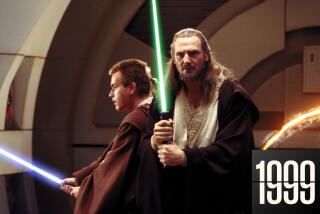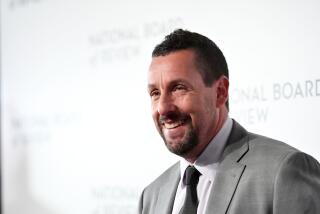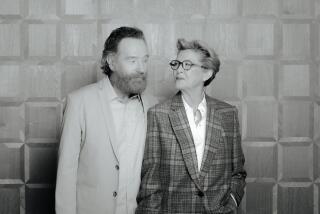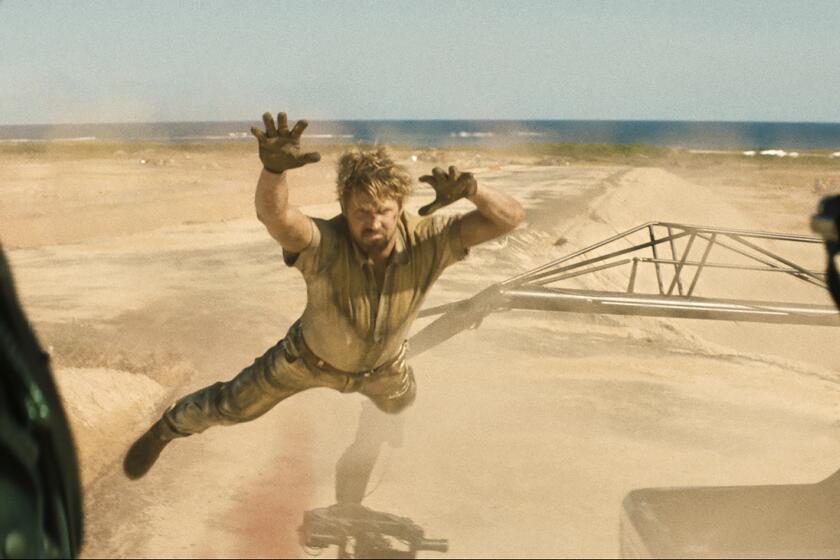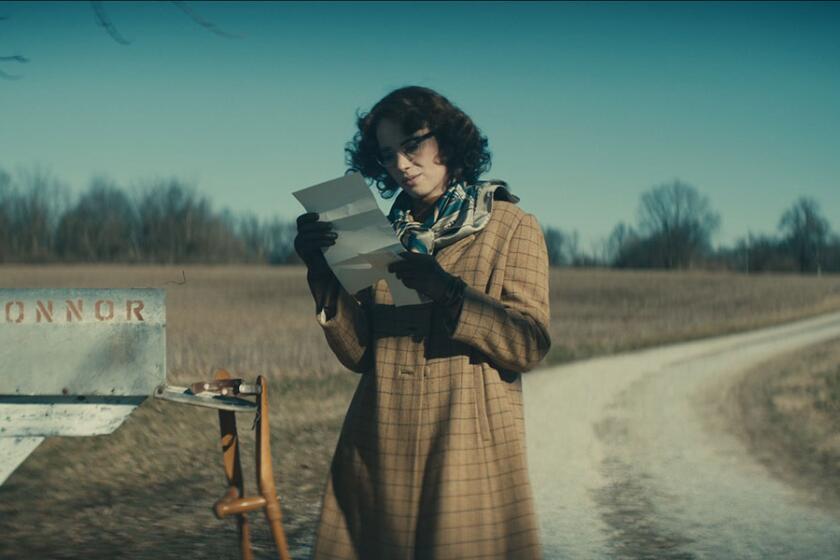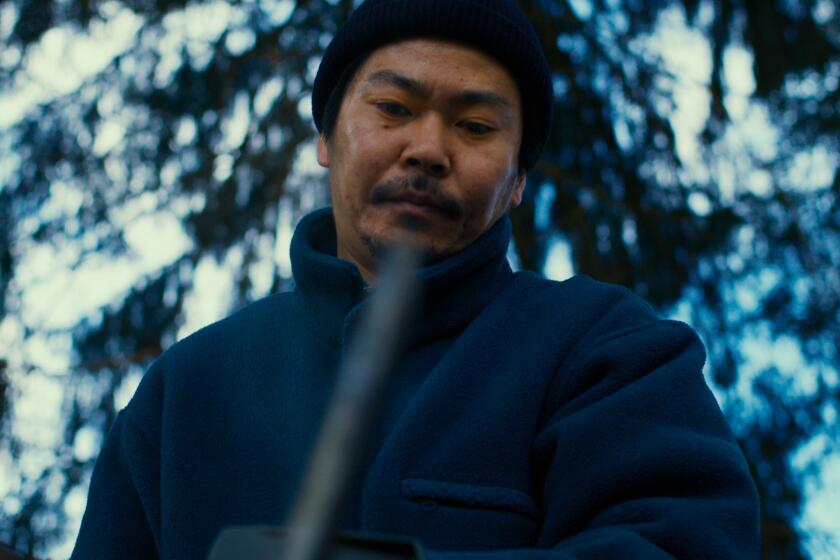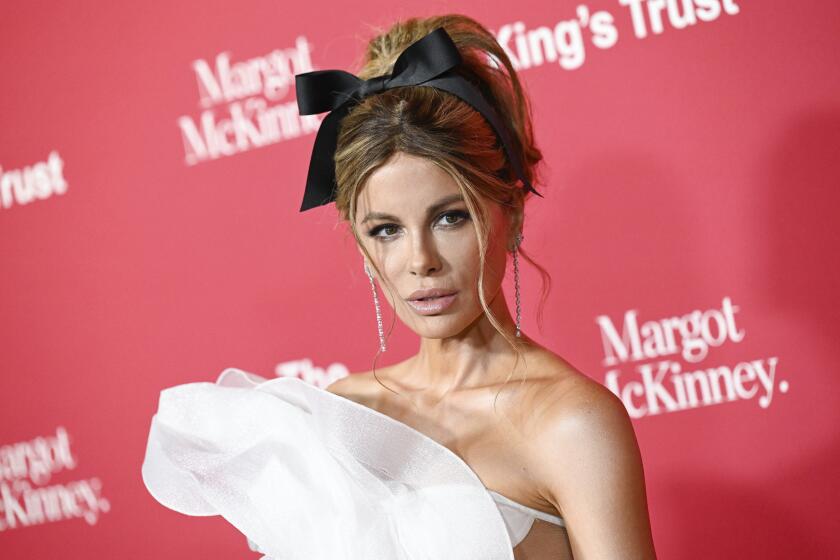Batch of Winners at ‘Festival Hong Kong’
The Nuart’s captivating “Festival Hong Kong” continues with Tsui Hark’s latest dazzler, “Once Upon a Time in China II” (1992), which plays Tuesday and Wednesday with Ching Tiu-Sung’s “Swordsman II.”
Jet Li returns as Master Wong Fey-Hong, who was an actual turn-of-the-century surgeon and is treated here as a folk hero. He takes on Canton’s menacing White Lotus Sect, which is dedicated to eradicating all Westerners and Western influence from China and whose leader is said to possess supernatural powers. The film is Tsui Hark’s usual stylish and terrific mix of action, comedy and politics, with the White Lotus Sect carrying on its ceremonies like a Vegas production number and the martial-arts displays as balletic as an act in the Cirque du Soleil.
Li also stars in “Swordsman II” (1992), and while it is lively and stylish fun, it lacks the coherence of Ching’s “A Chinese Ghost Story” and becomes clear only in the last reel. In essence, it’s a cautionary tale about absolute power corrupting absolutely.
As the hard-drinking Swordsman, Li plays the leader of the Wah Mountain Students and is eager to take up the monastic life with the Sun Moon Sect of Chinese Highlanders. The sect’s magical sacred scrolls have been stolen by the ambitious sect member Fong the Invincible, who decides that his lust for power will be more easily realized if, through the scroll’s magic, he is gradually to evolve into a fierce female warrior called Master Asia (Brigitte Lin). Li’s quest for the scrolls is complicated in ways piquant and poignant by his attraction both to Master Asia and to the beleaguered young woman who heads the Sun Moon Sect.
Thursday and Friday bring an exceptionally strong and entertaining double feature, Jackie Chan’s latest picture, “Super Cop: Police Story III” (1992), directed with unflagging zest by Stanley Tong, and Alex Law’s charming “Painted Faces” (1989), based on Chan’s experiences as a student at Hong Kong’s strict but struggling Peking Opera Academy.
“Super Cop” is a simply sensational action picture, highlighted by Chan’s acrobatic mastery of martial arts and set off by his irresistibly irreverent sense of humor. The film seems to be looking ahead to 1997 when the British pull out of Hong Kong in a conciliatory spirit as Chan teams with an equally resourceful People’s Republic of China cop (Michelle Khan), with whom he goes underground to destroy a major drug cartel. It’s a nonstop adventure that climaxes in a mind-boggling chase in Kuala Lumpur involving a helicopter, a train and a motorcycle.
Although Hong Kong filmmakers are renowned for their mastery of genre, they are no less effective in the less frequently made personal film--”Painted Faces” is a case in point. The stark impression of the severe regimen at the Peking Opera Company, which from time to time is resisted by the 18 male students, ranging from 9 to 19 in age, with a “Zero for Conduct”-like exuberance, gives way to the awareness that the tiny academy’s paunchy master (Samo Hung, himself an academy graduate) is not only selfless in his dedication but is also facing the imminent collapse of his school as the traditional Chinese opera fades as a popular entertainment. We discover in the course of this endearingly sentimental film just how Chan and others got their chances at screen stardom.
Currently filming the Jean-Claude Van Damme starrer “Hard Target” for Universal in New Orleans, John Woo is arguably the best director of contemporary action films working anywhere. As Woo plays sentimentality against extreme violence he demonstrates that not since Sam Peckinpah has anyone been able to make such carnage seem so expressive. What sets Woo apart from other hard-action filmmakers is that he is concerned with codes of honor and issues of clan loyalty and that his heroes are invariably self-aware and reflective. Clearly, he’s a student of vintage Hollywood Westerns and gangster pictures.
In Woo’s “A Better Tomorrow I” (1986), which screens Saturday and Sunday with his latest, “Hard-Boiled” (1992), a gangster (Ti Lung) is torn between allegiance to his rookie cop brother (Leslie Cheung) and his hit man pal (Chow Yun-Fat). In “Hard-Boiled,” which boasts a 45-minute shootout finale, the charismatic Chow plays a veteran policeman faced with the prospect of teaming up with a mob assassin (Tony Leung, not the one who stars in “The Lover”) who may or may not be an undercover cop. Woo will appear at 7:15 p.m. Saturday and speak after “Hard-Boiled” screens. Information: (310) 478-6379.
More to Read
Only good movies
Get the Indie Focus newsletter, Mark Olsen's weekly guide to the world of cinema.
You may occasionally receive promotional content from the Los Angeles Times.
